Following Khamenei’s Cue, Iran Judiciary Brands Hijabless Women ‘Spies’
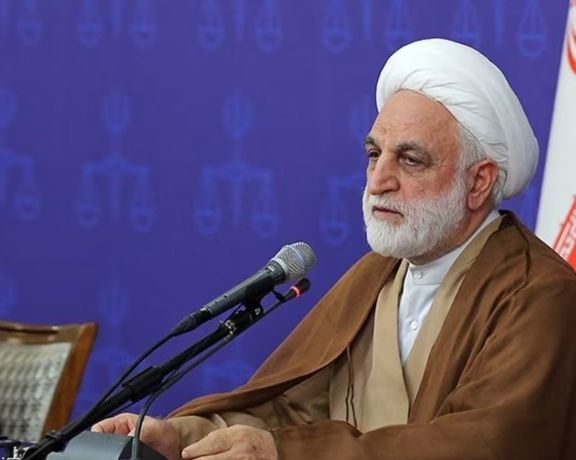
Echoing recent remarks by Iran’s ruler Ali Khamenei, judicial authorities say those who oppose compulsory hijab rules are in league with intelligence agencies of ‘enemies’.

Echoing recent remarks by Iran’s ruler Ali Khamenei, judicial authorities say those who oppose compulsory hijab rules are in league with intelligence agencies of ‘enemies’.
Two days after Khamenei’s assertion that flouting hijab is “religiously and politically haram,” Iran's Chief Justice Gholamhossein Mohseni-Ejei said women and girls who are not willing to abide by the mandatory Islamic dress code regulations and appear in public without headscarves are "linked to foreign spy agencies".
Without providing any documents to prove his claim, he said, "Today, the enemies are advancing their conspiracies in various ways and plan to fuel deviance in our society."
Threatening those who defy hijab rules with stricter punishment, he said that “the enemies are trying to tie the hijab issue to politics.” Earlier in April, he warned of strict punishment for women flouting hijab rules.
Also on Thursday, Mohammad Mossadegh, the first deputy head of the judiciary, warned, the judiciary “will deal seriously with the enemies and norm-breakers who cooperate with the spy services in promoting unveiling in Iran."
Alireza Panahian, a spokesman of Khamenei’s office and the head of the Supreme Leader's think tank for universities, supported the sentiments, saying "We must make a change in our religious teachings, this situation is no longer tolerable when we see this amount of religious aversion in the society.” However, he added some balance by asserting that atheism in society is not prevalent, and that “people have not revolted against religion.”
The remarks came following Khamenei’s Tuesday speech, during which he claimed that foreign intelligence services were encouraging Iranian women to disobey mandatory hijab.
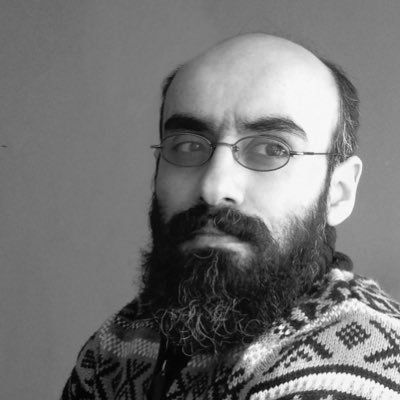
Iranian journalist and activist Hossein Razzagh, imprisoned in Tehran's notorious Evin prison, has had his sentence extended by four years.
Razzagh’s twitter account published an update on Thursday that Branch 26 of the Revolutionary court has issued a new sentence on charges of “conspiring and colluding with the intention of disrupting the security" of the country and "propaganda against the system.”
The charge of disrupting security was because of Razzagh’s managing a popular room on the social audio app clubhouse, and the charge of propaganda against the regime is for his open support for the Baha’i community, one of the most persecuted religious minorities in Iran.
The brave political activist was arrested by security forces in the northern Iranian city of Amol on August 21, less than a year after his release on $67,000 bail (20 billion Iranian Rials at the time) for his previous criticism of the regime.
Another charge against him was “publishing lies with the intention of disturbing the public mind," which he is accused of for tweets defending Sepideh Rashno, a woman who was arrested for protesting mandatory hijab rules before the death in custody of Mahsa Amini.
Razzagh, who has been detained many times in recent years, was one of the founders of a virtual chatroom in the clubhouse called "Freedom Square," where participants were critical of the regime. He claims he was forced to remove the room from the platform under pressure and threats by the Intelligence Ministry.
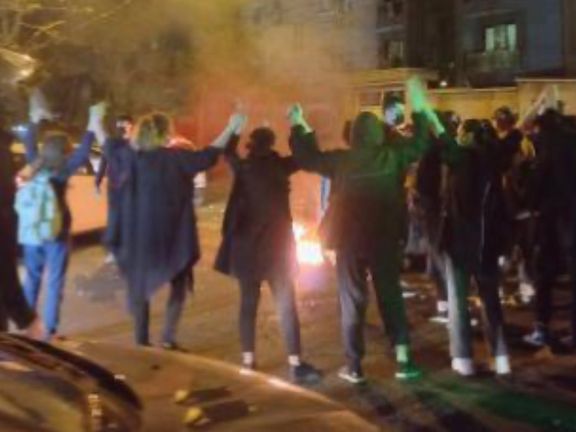
Fresh antiregime rallies took place Wednesday night in the Iranian capital Tehran as people gathered outside the home of one of the protesters killed by the Islamic Republic.
A large crowd of Tehran residents staged a demonstration in the Shahre-Ziba neighborhood, on the birthday anniversary of Hamidreza Rouhi who was killed by the security forces’ live fire on protesters on November 18, 2022. Scenes in the streets were reminiscent of protests last year, invigorating activists.
Following the Wednesday night protests, Hamidreza Rouhi’s father was reportedly arrested on Thursday.
The earlier nationwide protests gradually decreased as the regime killed more than 500 people arrested at least 20,000 others.
Rouhi, a university student who had a modeling career since childhood, was a popular teen with many friends in his neighborhood. He was killed during street protests after he was shot with three bullets.
Rouhi was one those protesters whose death touched a lot of Iranians, with his funeral procession and services for his third, seventh and 40th day after his death also morphed into big protest rallies.

The 40th day after someone’s death carries immense religious and cultural significance in Iran where memorials are held on days three, seven, and forty after death. There is also a historical parallel in the events leading to the 1979 revolution when 40th day memorials invigorated the revolutionaries and their protests.
On Wednesday night, people blocked Shahre-Ziba's main boulevard and set up fires in the middle of the street to stop the deployment of security forces. Soon after videos and news of the protests in the neighborhood surfaced on social media, people in some other parts of the city also held protest rallies, chanting the main slogans of the ‘Women, Life, Liberty’ movements as well as many directly against the regime’s ruler Ali Khamenei.
The rallies were the biggest in the new Iranian year – which started on March 21, indicating that the protest movement has not faded away, despite the propaganda by the authorities who had claimed “the riots” would not reoccur.
In addition to singing songs of the revolution and chanting slogans, women also removed their hijab and moved around bonefires during the Wednesday night gatherings, according to social media videos.
Since 22-year-old Mahsa Amini was beaten to death by hijab enforcers in September 2022, sparking a nationwide revolt, the simple act of unveiling in public has become a common occurrence across Iran, and a thorn in the side of the regime hardliners who are pushing for stricter measures.
Supreme Leader Ali Khamenei’s assertion Tuesday that flouting hijab is “religiously and politically haram” has prompted officials to signal harsher crackdown on those who unveil in public.
Following Khamenei’s cue, the ministry of interior in its second statement on hijab within a week, alleged that the opposition to compulsory hijab was an enemy plot advanced by foreign intelligence services and the opposition outside Iran, who through social media are trying to use it to “create deep social divides and a divide between the people and the government.”
The unrest since Amini’s killing by the police has made it increasingly difficult to enforce the mandatory Islamic dress code which has become a symbol of opposition against clerical rule.
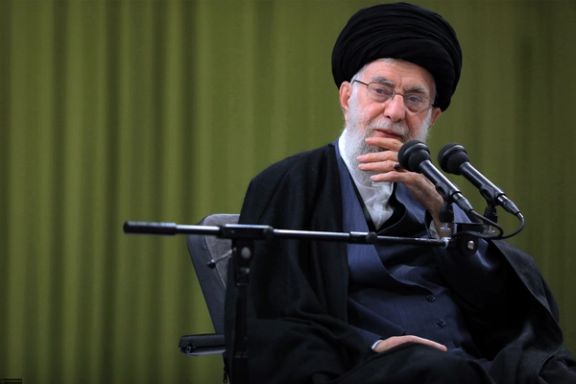
Iran’s Supreme Leader Ali Khamenei has once again attributed the anti-hijab protests to “enemies” abroad.
In his latest rant, he claimed this mysterious entity intends to target the intellectual strengths of the Islamic Republic by “weakening women's modesty”.
In a gathering of poets affiliated with the regime on Wednesday, without referring to the Women, Life, Freedom movement, Khamenei attributed the civil disobedience of women to “Westerners”.
He said they “have no [genuine] pity for Iranian women nor do they have any respect for their rights. Rather, they have a grudge against Iranian women and falsely present themselves as supporters of freedom and women's rights.”
He went on to say that “the West is not worthy of being the one to talk about human rights at all” claiming that "Right now, women in Western countries have the most complicated problems; [even] more than other countries."
During the recent unrest, women have been on the streets burning headscarves, cutting hair, dancing in public centers, and appearing without the clothing approved by the regime in defiance of the regime.
In the past months, the Supreme Leader and officials of the Islamic Republic have repeatedly tried to link the nationwide protests to foreign countries.
Despite the claim of the authorities about respecting women's rights in Iran, the government policies are based on reducing women's social responsibility to "wifery and housekeeping" and any protests in this regard are harshly suppressed.
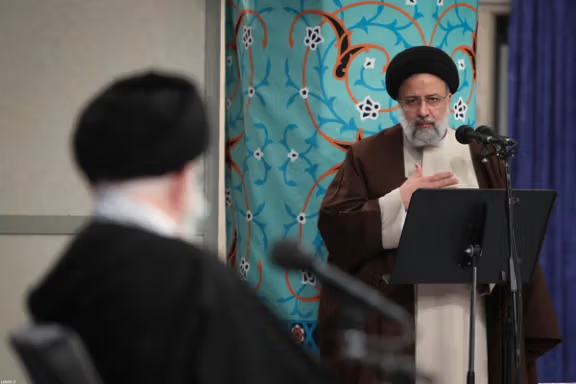
Supreme Leader Ali Khamenei’s assertion Tuesday that flouting hijab is “religiously and politically haram” has prompted officials to signal stricter measures.
At a meeting with state officials Tuesday, Khamenei claimed that foreign intelligence services were encouraging Iranian women to disobey mandatory hijab. He also claimed that “the enemy” is working according to “a plan and plot” and urged authorities to have their own plan for dealing with the issue of hijablessness.
“Discarding hijab is haram based on Sharia and also politically,” he declared. His declaration was a clear signal to authorities that they need to do anything it takes to re-establish control over women which had somehow waned following anti-regime protests.
“The order given by his excellency is clear,” Parliament Speaker Mohammad-Bagher Ghalibaf said Wednesday while promising to give precedence to any hijab-related motion or bill.
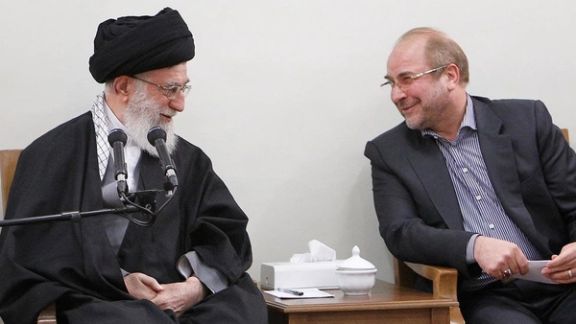
Following Khamenei’s cue, the ministry of interior in its second statement on hijab within a week, alleged that the opposition to compulsory hijab was an enemy plot advanced by foreign intelligence services and the opposition outside Iran, who through social media are trying to use it to “create deep social divides and a divide between the people and the government.”
Airport staff refusing to offer services to ‘hijabless’ women in Shiraz
Claiming that the ministry is responsible for ascertaining and defending “rights of the majority of the people,” the statement said it will fully support the activities of vigilantes who have been harassing women to follow the Islamic dress code.
The ministry also said the judiciary and other organizations involved in the enforcement of compulsory hijab will take action “against the few who act against the society’s norms” to defend the “dignity and identity of the Muslim Iranian women.”
Mahsa Amini’s death in ‘hijab police’ custody in September sparked the protests That engulfed the country nearly non-stop for four months. Many women burned their headscarves during the protests, vowing never to surrender to compulsory hijab again.
‘Hijabless’ women are now seen everywhere, even in some of the most conservative cities. For many, this is a form of civil disobedience. Some social media users have said that in some public venues such as restaurants, ‘hijabless’ women outnumber those who wear headscarves.
On Wednesday, an official of Tehran’s Metro Organization, Masoud Dorosti, said his organization has set up a “chastity and hijab taskforce” for enforcement on public transport. According to Dorosti, the first phase of the plan, giving verbal warnings to women who do not abide by the hijab requirement, has begun at metro stations. Tehran municipality has adopted similar plans.
The police and the judiciary have also resorted to pressuring businesses to enforce the hijab on their premises.
Authorities have shut down hundreds of shops, restaurants, cafes, and ecotourism facilities during the two-week New Year (Nowrouz) holidays across the country.
Earlier this week, the ministry of higher education said institutions under its coverage will no longer offer educational and other services to students who do not abide by hijab rules.
The Islamic Azad University, which is not administered by the ministry, has also announced strict measures against defiance of the compulsory hijab. The university which has over 1.1 million students across Iran has ordered its faculty to “seriously manage” abidance of the hijab rules by their students and threatened them with repercussions if students flout hijab in their classes.
“Conflict between professors and students? We are teachers not police or sheriffs. It is knowledge that will eventually be harmed by destroying teachers’ relationship [with students],” a professor of criminal law at Tehran university, who was recently sacked for criticizing the regime after the execution of four young protesters, said in a tweet Tuesday.
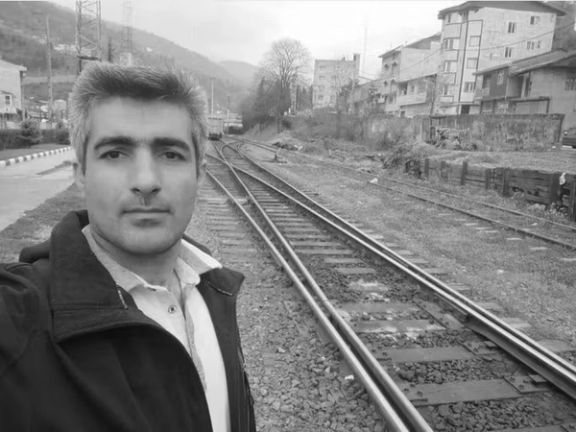
Security organs in Iran have arrested three family members of a victim of the nationwide protests that have rocked the country in September 2022.
Agents on Wednesday arrested the parents and a brother of Javad Heydari who was killed last September by the security forces of the Islamic Republic in a village near Qazvin west of Tehran.
Fatemeh Heydari, Javad’s sister, announced in a tweet that her parents and Mohammad, one of his brothers, were arrested on Wednesday.
The arrests come as Ruhollah Heydari, another member of the family, has been detained since Monday.
Javad Heydari's sister was also fired from her workplace, Iran’s Mapping Organization in March.
During the protests, ignited by the death in custody of 22-year-old Mahsa Amini, hundreds of people lost their lives and many more received permanent injuries.
The authorities not only failed to accept any responsibility, but put pressure on some of the victims' families who made statements against regime officials during funerals or on social networks.
According to Amnesty International, the Iranian authorities’ arbitrary arrests, intimidation and harassment of relatives of victims exposes their inconceivable cruelty and sinister attempt to cover up their crimes.
“The authorities have not only condemned families …to a lifetime of inconsolable sadness, but they have also inflicted extreme mental anguish upon them through cruel restrictions on burials, commemorations and relentless intimidation aimed at enforcing silence,” said Heba Morayef, Amnesty International’s Regional Director for the Middle East and North Africa.